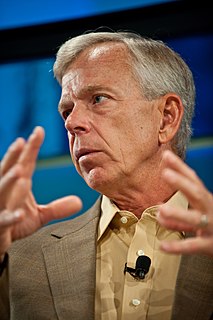A Quote by J. G. Ballard
During the 1960s, the Shanghai of my childhood seemed a portent of the media cities of the future, dominated by advertising and mass circulation newspapers and swept by unpredictable violence.
Related Quotes
Advertising and the free society are closely connected. Advertising helps to make a free society remain so by increasing competition, and by helping to maintain the freedom of the mass media themselves. The free society is one where advertising and advertising agencies are likely to be in considerable demand, though it is true that even in a totally centralist society there would still be a need for organisations and people to have access to mass communication media.
Our company has only been active in Beijing and Shanghai, two very market-dominated cities. This was an advantage. Land is purchased here in public auctions, in a transparent way. When you do real estate development outside Beijing and Shanghai it is good to have "guanxi" - good relations within the local government.
The Second Wave Society is industrial and based on mass production, mass distribution, mass consumption, mass education, mass media, mass recreation, mass entertainment, and weapons of mass destruction. You combine those things with standardization, centralization, concentration, and synchronization, and you wind up with a style of organization we call bureaucracy.
Terrifying mass shooting and high-profile officer-involved incidents have dominated the national conversation on gun violence in recent years. But most deaths by gun are not headline-grabbing massacres. They`re more private, more intimate, and perhaps in that way, even more horrifying. Domestic violence, make no mistake, domestic violence is a gun issue.
At Verizon, we've been strategically investing in emerging technology, including Verizon Digital Media Services and OTT, that taps into the market shift to digital content and advertising. AOL's advertising model aligns with this approach, and the advertising platform provides a key tool for us to develop future revenue streams.
The arrival of television established a mass-media order that dominated the last 50 years. This is a personal media revolution. The distinction between the old order and the new order is very important. Television delivered the world to our living room. In the old media, all we could do was press our noses against the glass and watch.
Because of the control of the media by corporate wealth, the discovery of truth depends on an alternative media, such as small radio stations, networks, programs. Also, alternative newspapers, which exist all over the country. Also, cable TV programs, which are not dependent on commercial advertising. Also, the internet, which can reach millions of people by-passing the conventional media.






































